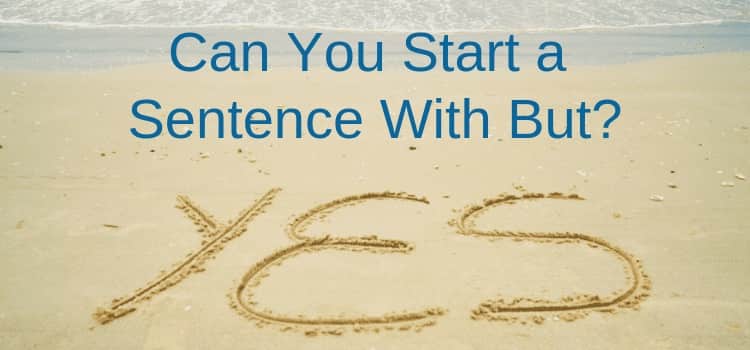
Grammar is one of my pet topics, and I never stop learning about it. But every now and then, I come across some weird grammar terms that make me scratch my head.
Not so much because they are strange structures but because the terms to describe them are so difficult to remember, let alone pronounce sometimes.
You might not recognize or know some of these terms. However, when you see some examples, I’m sure you’ll know what they are describing.
Many of them are about the clever use of words or word order, which is a great reason to try to remember a few of them.
Never stop learning grammar
Collecting grammar or literary terms might seem like a silly pursuit, but I keep a little list.
It might not seem worthwhile, but I do refer to it occasionally, mostly when I’m struggling with how to phrase something or want to try something new.
Who can even pronounce zeugma? But it describes a simple yet clever way to add surprise to a phrase.
It’s not so much about learning the terms but about noticing the clever devices authors, writers, comedians, and even public speakers use to make reading or listening more enjoyable.
Another benefit is that the description of these terms can sharpen your attention to detail and help you include new structures in your writing.
If that’s not enough, they can make learning grammar fun.
You’re a writer, so you work with words.
But when you notice a sentence is a bit boring or dry, perhaps one of these grammar structures will help you.
While the names for some of these terms are obscure and unpronounceable, that doesn’t mean they aren’t worthwhile to learn.
Take a quick look at the list below and see if one or two are worth using in your writing.
15 Terms you will forget
You probably won’t remember these names, but I’m sure you’ll remember the structures and wordplays.
Have fun adding a little more pizazz to your writing.
1. Anacoluthon
Starting a sentence with one thought and suddenly shifting to another without finishing.
It’s like your mind takes a sharp turn mid-sentence, leaving your thoughts disjointed or incomplete.
I was going to tell him that—oh, never mind.
You can’t just expect me to—actually, forget it.
I thought I would—well, never mind what I thought.
2. Aposiopesis
Leaving a sentence unfinished and letting the listener or reader guess the rest.
You often use this when you’re too emotional or hesitant to finish your thought.
I swear, if you don’t stop talking, I’ll—
Don’t you dare—
If you touch that, I’m going to—
3. Catachresis
Deliberately misusing a word or phrase, often in a way that creates a mixed metaphor.
It can be poetic or dramatic, even if it doesn’t always make perfect sense.
I ate so much, I’m stuffed to the brim.
The straw that broke the elephant’s back.
He listened with a thirsty ear.
4. Epanorthosis
Immediately correcting yourself mid-sentence, usually to emphasize a stronger or more accurate point.
It’s a way to show urgency or intensity.
I love you—no, I adore you!
He was the best man—scratch that, the only man for the job.
I’ve been waiting for hours—no, days—for your reply!
5. Epenthesis
Adding an extra sound or syllable inside a word.
This happens often in casual speech, where words end up with extra sounds that don’t belong.
Warmth pronounced as “warmpth.”
Saying “fillum” instead of film.
Pronouncing hamster as “hampster.”
6. Hendiadys
Using two words together to express a single idea.
Instead of an adjective modifying a noun, you give both words equal importance.
He came despite the rain and weather. (instead of despite the rainy weather).
She displayed grace and poise. (instead of graceful poise).
They arrived with confidence and enthusiasm. (instead of confident enthusiasm).
7. Hypallage
Transferring an adjective from its logical subject to something else in the sentence.
This creates an unusual effect, often making your sentence sound poetic or quirky.
The angry clouds marched across the sky. (instead of the angry storm).
The restless night tossed and turned me in my bed. (The person is restless, but the adjective restless is transferred to the night.)
She threw him a friendly handshake. (It’s the person who is friendly, not the handshake itself.)
8. Malapropism
Accidentally using a word that sounds like the one you mean but has a completely different meaning.
This often leads to funny misunderstandings.
He’s the pineapple of politeness” (instead of pinnacle).
Texas has a lot of electrical votes” (instead of electoral votes).
It’s beyond my apprehension” (instead of comprehension).
9. Paraprosdokian
When the second part of a sentence surprises you and changes the meaning of the first part.
It’s often used in humor or to create a punchline that catches the reader off guard.
I want to live forever, or die trying.
The last thing I want to do is hurt you. But it’s still on the list.
I’ve had a perfectly wonderful evening, but this wasn’t it.
10. Pleonasm
Use more words than necessary to convey a point.
It’s a form of redundancy, but you might do it intentionally for emphasis or just out of habit or even for an epigraph.
He saw it with his own eyes.
I heard it with my own ears.
Let’s meet together at noon.
11. Sesquipedalian
Using long, complicated words when shorter ones would do.
It’s fun when you want to impress or confuse people with your vocabulary.
The meteorological conditions were unfavorable for outdoor activities.
Instead of saying help, she opted for the sesquipedalian version: facilitate assistance.
The conspicuous verbosity of his dissertation obfuscated its primary thesis.
12. Spoonerism
Accidentally or intentionally swapping the first letters or sounds of two words while speaking.
These slips of the tongue can lead to funny or nonsensical phrases.
You’ve tasted two worms (instead of, you’ve wasted two terms).
Fighting a liar (instead of lighting a fire).
Tease my ears (instead of, ease my tears).
13. Syllepsis
Syllepsis happens when you use a single word to modify two others, but the word has different meanings depending on the subject.
It’s a bit like Zeugma but with more of a mismatch.
He caught the train and a cold.
She exercises to lose weight and her temper.
He stole her heart and her wallet.
14. Tmesis
Splitting a word or phrase and inserting another word in the middle.
You’ve probably done this when you wanted to emphasize something in a dramatic or funny way.
Fan-bloody-tastic!
Un-freaking-believable!
That’s abso-freaking-lutely amazing!
15. Zeugma
Zeugma happens when you apply a single word to two others in a sentence but in different senses.
It’s a clever way to add humor or surprise to your writing by making the reader think about the double meanings.
He opened his mind and his wallet at the same time.
She lost her keys and her temper.
She broke his heart and his favorite mug.
Summary
There’s a crossover between literary devices and literary and grammar terms.
However, a literary device most often refers to how a story, or part of a story, is told. Good examples are foreshadowing, flashback, motif, or theme.
On the other hand, literary and grammar terms relate to individual sentence structure and word use.
The other difference is that literary and grammar terms often have more weird names than literary devices.
Related Reading: What Is Parallelism In Writing And How To Use It
Share This Article


